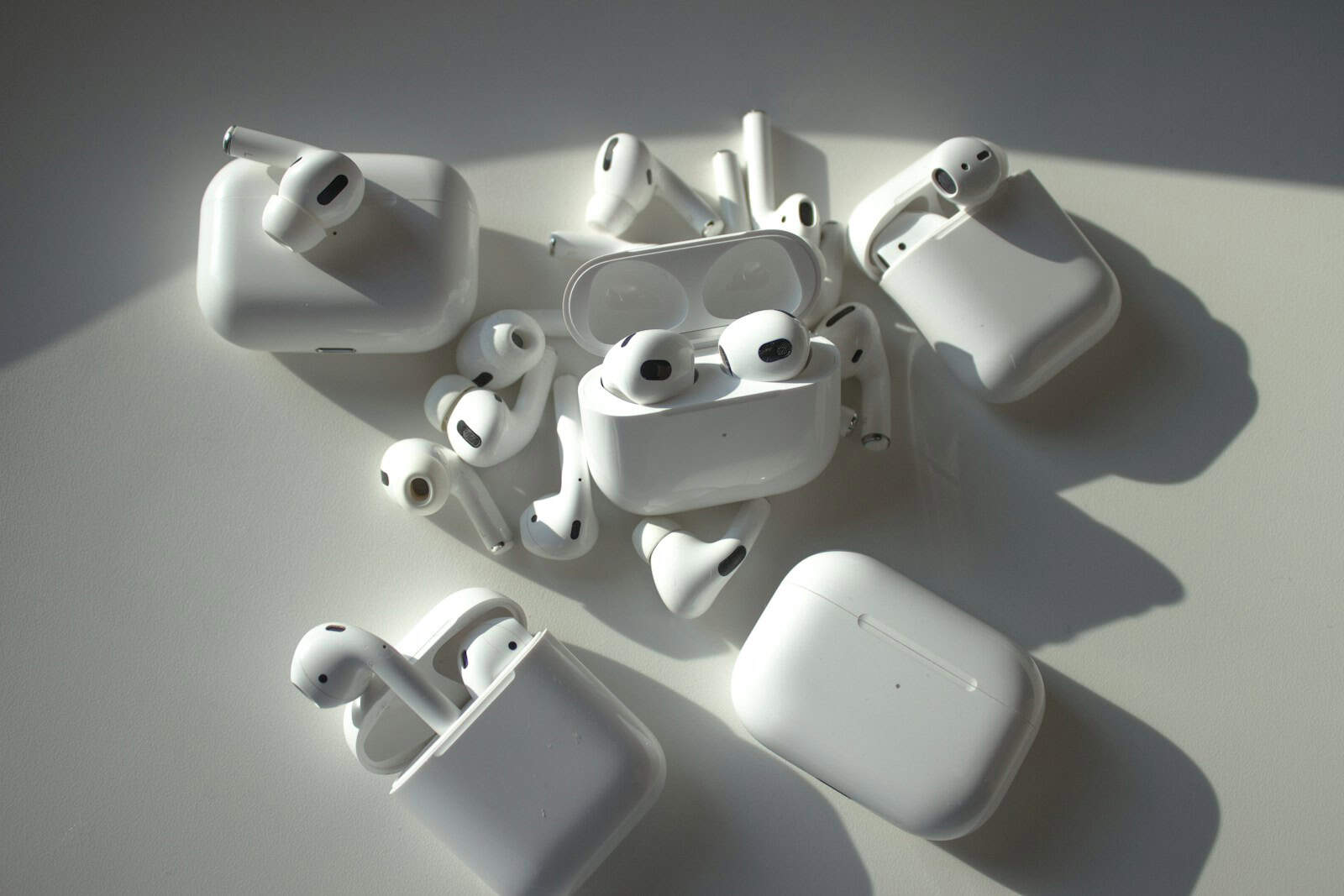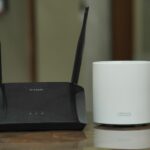Are your AirPods making a high-pitched noise that’s ruining your listening experience? You’re not alone. Many AirPods users report this irritating issue. The most common fixes include cleaning your AirPods, updating their firmware, resetting them, or checking the ear tips and cushions for proper fit.
This squealing or whistling sound often happens when there’s feedback between the AirPods sensors. It’s similar to how microphones squeal when placed too close to speakers. The noise can start suddenly during use or appear as a constant background sound that distracts from your music or calls.
Fixing this problem is usually simple. Quick solutions range from a basic reset to checking for damaged ear tips. Sometimes the fix is as easy as adjusting your background sounds settings or inspecting the silicone ear tips for proper sealing. Many users have completely eliminated these annoying sounds with these steps.
Why Are Your AirPods Making a High-Pitched Noise?
If your AirPods are emitting a high-pitched whine, squeal, or static-like tone, it’s not just annoying—it’s a sign that something isn’t working correctly. This issue can be caused by a variety of factors including software bugs, hardware faults, poor Bluetooth connections, or interference from surrounding devices. Let’s explore the most common causes and how to fix them.
1. Check for Feedback and Microphone Loop Issues
High-pitched noises are often a form of audio feedback—a sound loop that happens when your AirPods’ microphones pick up the audio they’re also playing. This usually happens:
- When you’re using the AirPods in mic-enabled situations (e.g., phone calls, voice memos, or FaceTime)
- If there’s a nearby sound source, like a speaker or another person’s device, creating a feedback loop
Quick Fix:
- Try muting your mic temporarily and see if the sound stops.
- Switch from Active Noise Cancellation to Transparency or Off in the Control Center or via Settings on your iPhone.
- If you’re in a call or video meeting, exit the call and rejoin to reset audio input/output paths.
2. Update AirPods Firmware
Outdated firmware can cause strange behavior—including high-pitched sounds. AirPods receive firmware updates automatically when connected to an iPhone or iPad and charging, but you can help the process along:
- Make sure your AirPods are in their case, charging, and near a connected iPhone with internet access.
- Wait 30 minutes. If an update is pending, it usually installs during this period.
You can check the firmware version by going to Settings > Bluetooth > (i icon next to your AirPods) and scrolling to the “About” section.
3. Reset and Reconnect Your AirPods
Glitches from prolonged use or pairing issues can trigger odd audio behavior. A reset can often clear the problem.
How to Reset:
- Place both AirPods in their charging case.
- Open the lid and press the setup button on the back until the LED flashes amber, then white.
- Re-pair the AirPods by holding them near your iPhone and following the onscreen instructions.
This refreshes the connection and often removes any corrupted pairing data that could be causing audio artifacts.
4. Avoid Interference From Other Devices
Bluetooth interference is a less obvious, but very real cause of high-pitched noise. Devices like routers, microwaves, and other Bluetooth or Wi-Fi devices can disrupt the signal to your AirPods, causing audio distortions.
What You Can Do:
- Move to a different room to rule out local interference.
- Turn off nearby wireless devices and test the AirPods again.
- Avoid using AirPods in high-traffic wireless zones like crowded offices or coffee shops if the problem persists.
5. Inspect for Dirt, Wax, or Moisture
A blocked speaker grill can create distorted audio that sounds like high-pitched squealing or whistling. It might not be feedback at all—it could just be clogged hardware.
Cleaning Tips:
- Use a soft, dry, lint-free cloth to clean the exterior.
- For the speaker mesh, gently brush with a soft-bristled toothbrush or a dry cotton swab.
- Avoid sharp tools or liquids—these can damage the delicate components.
Also, if your AirPods have been exposed to sweat or rain recently, let them dry thoroughly before using them again.
6. Test with Another Device
To isolate whether the issue is with your AirPods or the device they’re connected to:
- Connect your AirPods to a different iPhone, iPad, Mac, or Android phone.
- Play various types of media—music, podcasts, videos—and see if the high-pitched noise continues.
If the issue disappears, the problem may lie with the original device’s Bluetooth stack or settings. Restart that device, check for software updates, and try again.
7. Contact Apple Support If It Persists
If none of the steps above work and your AirPods continue making high-pitched noises regularly, there could be a hardware fault—especially if it only happens with one AirPod or when ANC is on. AirPods still under AppleCare may qualify for a replacement. Don’t wait too long to report it if the issue is persistent.
Final Thoughts
High-pitched noises from AirPods Pro or standard AirPods aren’t normal, but they’re also not uncommon—and in most cases, they’re fixable without needing new hardware. Whether it’s a software glitch, interference, or a simple cleaning issue, working through these steps systematically will usually get your AirPods back to sounding the way they should.
Key Takeaways
- Clean your AirPods and check ear tips for proper fit to eliminate feedback causing high-pitched noises
- Reset your AirPods or update their firmware through your iPhone to resolve persistent audio issues
- Adjust accessibility settings by enabling background sounds at zero volume to prevent squealing in some AirPods models
Diagnosing the High-Pitched Noise in AirPods
High-pitched noises in AirPods often result from specific technical issues that can be identified through systematic troubleshooting. These annoying sounds typically stem from sensor feedback, active noise cancellation features, or external device interference.
Identifying Common Causes
AirPods can produce high-pitched noises for several reasons. One main culprit is feedback between the AirPods and their sensors, similar to what happens when a microphone gets too close to a speaker. This feedback loop creates that unwanted sound.
Common causes include:
- Dirty or damaged silicone ear tips (AirPods Pro)
- Improper fit in the ear canal
- Software glitches after updates
- Hardware malfunctions
Users should first check if the silicone ear tips or cups are properly attached. Loose or damaged tips can trigger high-pitched sounds, especially when using noise cancellation features.
The position of AirPods in the ear also matters. If they’re not seated correctly, the proximity sensors may malfunction and create unwanted noise.
Impact of Active Noise Cancellation
Active Noise Cancellation (ANC) technology in AirPods Pro can sometimes cause high-pitched noises when not functioning properly. The ANC system uses microphones to detect external sounds and creates anti-noise to cancel them out.
When users switch between Transparency Mode and Noise Cancellation, they might hear a chirping sound. This often indicates the ANC system is struggling to adjust or calibrate.
Troubleshooting ANC issues:
- Remove AirPods from ears
- Clean the microphone meshes gently
- Remove and reattach silicone tips
- Toggle between noise control modes
Some users report that the high-pitched noise only appears with specific devices. Testing AirPods with different devices can help determine if the issue is device-specific or with the AirPods themselves.
Effects of Interference on Bluetooth Devices
Bluetooth interference is another common cause of high-pitched noises in AirPods. These wireless earbuds operate on the 2.4GHz frequency band, which many other devices also use.
Interference from other devices like Wi-Fi routers, microwave ovens, and other Bluetooth devices can disrupt the connection between AirPods and the paired device. This disruption sometimes manifests as high-pitched noise.
Sources of Bluetooth interference:
- Wi-Fi networks
- Other Bluetooth devices
- Wireless phones
- Microwave ovens
- Physical barriers like walls
Moving away from these interference sources can help reduce or eliminate the noise. Users should also check if their AirPods are connected to multiple devices simultaneously, as this can cause connection conflicts.
Keeping AirPods firmware updated is essential for optimal performance. Apple regularly releases updates that address various issues, including those related to high-pitched noises.
Troubleshooting and Resolving Issues
When your AirPods produce a high-pitched noise, several solutions can help fix this annoying problem. These range from simple cleaning methods to software updates and sometimes seeking professional assistance.
Step-by-Step Troubleshooting Steps
First, clean your AirPods carefully. Dirt and earwax can block speakers and cause strange noises. Use a soft, dry cloth to wipe the exterior and a small brush for small openings.
Next, try resetting your AirPods. This fixes many common issues:
- Put AirPods in their case and close the lid for 30 seconds
- Open the lid and press the setup button on the back for 15 seconds
- Wait for the status light to flash amber, then white
- Reconnect to your device
Software updates can also fix high-pitched noise problems. Check if your AirPods firmware needs updating by:
- Connecting AirPods to your iPhone
- Going to Settings > General > About > AirPods
- Looking at the firmware version and comparing to the latest release
Try switching between Noise-Canceling Mode settings. Sometimes the high pitch occurs only in certain modes.
When to Disable Automatic Ear Detection
The Automatic Ear Detection feature can sometimes cause feedback issues that create high-pitched noises. This happens when sensors get confused about whether AirPods are in your ears.
To disable this feature:
- Connect your AirPods to your iPhone or iPad
- Go to Settings > Bluetooth
- Tap the “i” icon next to your AirPods
- Toggle off “Automatic Ear Detection”
This often fixes chirping AirPods immediately. The downside is that your AirPods won’t automatically pause when removed from your ears.
Try using this feature only when needed. For many users, turning it off temporarily stops the high-pitched noise, then they can turn it back on later to see if the problem persists.
Addressing Physical Damage and Battery Life Concerns
Physical damage often causes persistent high-pitched noises. Examine your AirPods for:
- Cracks in the plastic casing
- Water damage indicators (look for reddish dots inside)
- Loose connections at charging points
For AirPods Pro, check the silicone ear tips. They should fit securely with no gaps. Try replacing them if they seem worn or damaged. Improper fit can cause feedback that creates high-pitched sounds.
Battery issues may also cause strange noises when power levels get low. When batteries degrade, they sometimes create electrical interference. Check battery health by:
- Placing AirPods in their case
- Opening the lid near your iPhone
- Looking at the battery percentage on-screen
If battery life has significantly decreased, this might be the source of your problem.
Seeking Professional Support from Apple
When troubleshooting doesn’t fix the high-pitched noise, it’s time to contact Apple Support. They can run remote diagnostics to identify hardware failures.
For AirPods still under warranty, Apple often provides free replacements for defective units. The standard warranty lasts one year, while AppleCare+ extends coverage.
Schedule an appointment at an Apple Store through:
- The Apple Support website
- The Apple Support app
- Calling Apple’s customer service
Before your appointment, back up any information about when the problem occurs. Note if the noise happens:
- Only in certain apps
- After specific amounts of usage time
- In particular environments (loud places, quiet rooms)
This information helps technicians diagnose the problem faster. In many cases, Apple replaces AirPods that have persistent high-pitched noise issues rather than attempting repairs.







